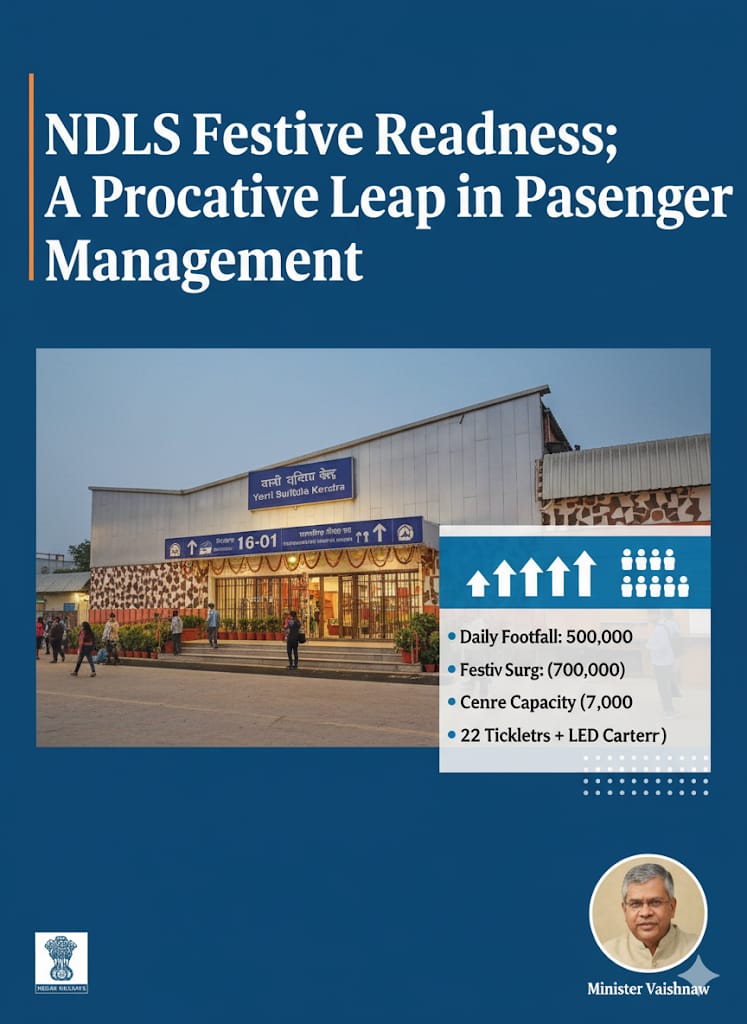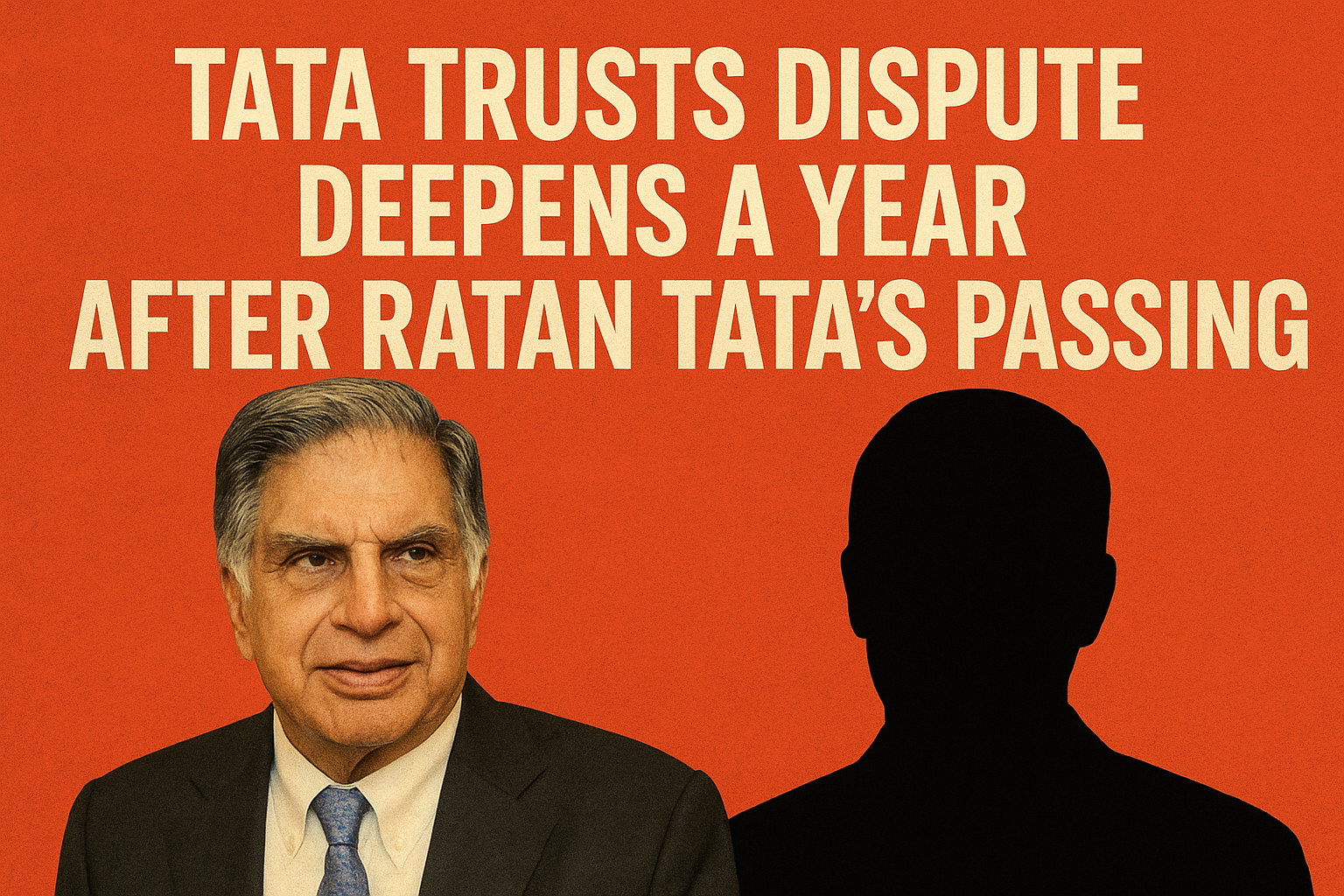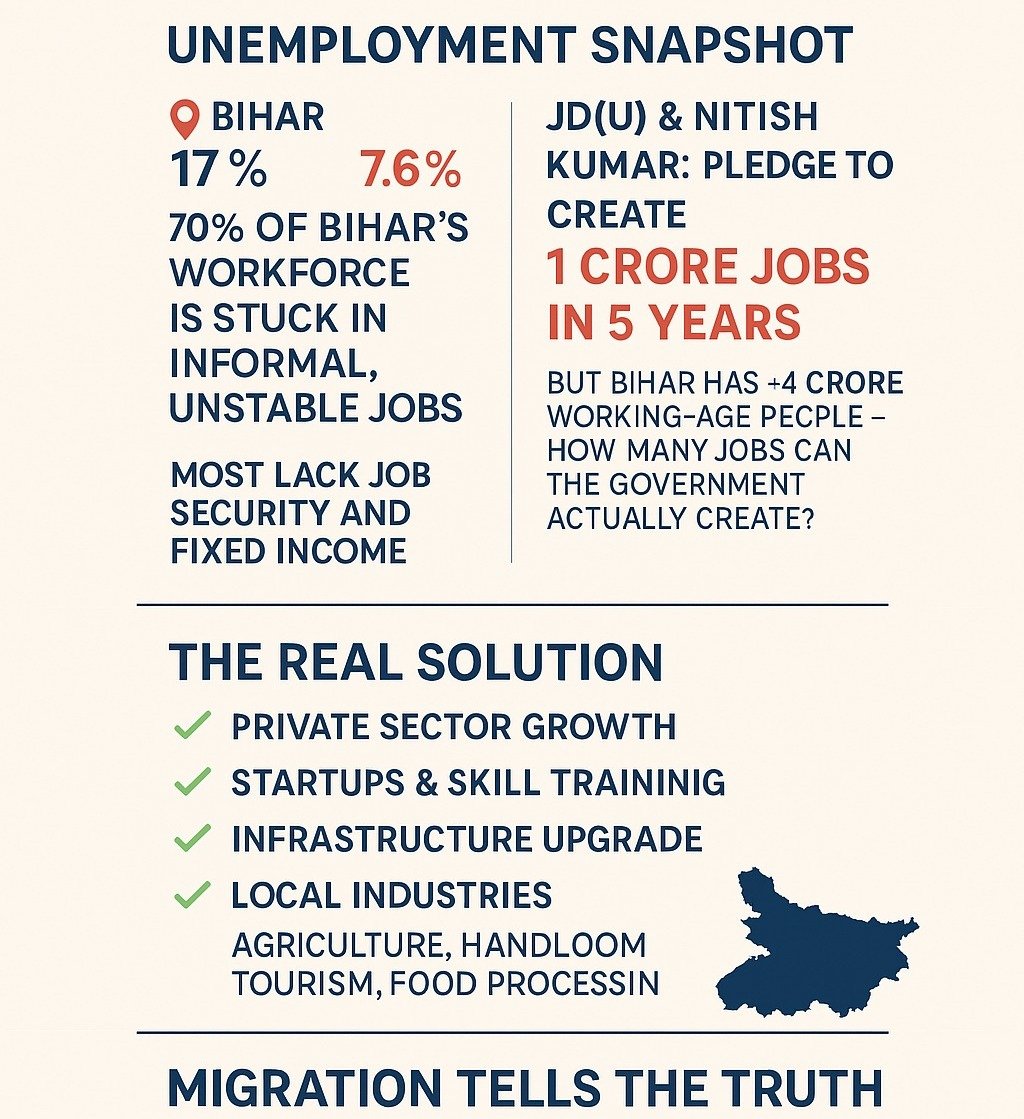
Job Promises Flood Campaigns, but the Crisis Runs Deep
When politicians from all major parties start promising jobs during election campaigns, it becomes clear that unemployment is not just a topic for debate in Bihar — it is a serious and growing crisis. In the 2020 Bihar Assembly elections, the Rashtriya Janata Dal (RJD) promised 10 lakh (1 million) government jobs, while the ruling Janata Dal (United) and Chief Minister Nitish Kumar followed with a bigger target of generating 1 crore (10 million) jobs over five years. The fact that job creation took center stage shows just how much pressure politicians are under to address this problem.
Persistent Poverty and Low Income Hold Bihar Back
Bihar has long been one of the poorest states in India. According to the NITI Aayog's Multidimensional Poverty Index, more than half of Bihar’s population is poor. Even today, the state's per capita income is the lowest in the country. In 2023–24, it stood at just ₹54,383 compared to the national average of around ₹1.72 lakh. For many families, this means limited access to health, education, and even basic facilities.
High Unemployment, Low Wages, and No Security
One of the biggest reasons for this poverty is unemployment or underemployment. Many people, especially the youth, are either jobless or forced to work in low-paying and unstable jobs. A report by the Centre for Monitoring Indian Economy (CMIE) in 2024 showed that Bihar had an unemployment rate of around 17 percent, much higher than the national average. Even those who do work often do not earn enough to lead a decent life. Most of them are engaged in agriculture or informal labor, which gives no job security or fixed income.
Can Government Jobs Alone Solve the Problem?
This is why job promises have become such an important part of election campaigns. But promises alone do not solve the problem. Bihar has a working-age population of about 40 million. To provide jobs to even half of them would require massive changes in policy, investment, and infrastructure.
A major concern is that many of these promises focus mainly on government jobs. But how many government jobs can really be created? Even if the government tries to fill all vacant posts, it would not be enough for such a huge population. Bihar’s annual budget also cannot support such a large expansion in its government workforce.
Private Sector Growth Is Crucial
The only practical way forward is to also encourage the private sector to grow and hire. This is where Nitish Kumar’s recent statements offer some hope. Unlike past promises that focused only on Sarkari Naukri (government jobs), he mentioned the importance of creating opportunities in the private sector. This includes encouraging businesses, startups, and industries to come and invest in Bihar. If these sectors are strengthened, they can provide stable employment to thousands of people.
Poor Infrastructure Pushes Investors Away
But for this to happen, Bihar must work on improving its infrastructure. Roads, electricity, internet, and transport facilities need major upgrades. Investors are more likely to come if they feel confident about running businesses smoothly.
The state also needs to invest more in skill development. Many young people in Bihar may have degrees, but they do not always have the skills that modern jobs require. According to a 2022 India Skills Report, only 48 percent of graduates in Bihar were considered employable by companies.
Labour Migration Reveals the Real Crisis
Labour migration is another result of the job crisis. Lakhs of workers leave Bihar every year to work in other states. During the COVID-19 lockdown, the struggles of migrant workers came into full public view. They walked back to Bihar in desperation, some losing their lives along the way. This showed how badly the state has failed to provide opportunities at home.
A Young Population Needs Urgent Solutions
Another serious challenge is Bihar’s rising young population. It has one of the highest fertility rates in India. This means that in the coming years, there will be more and more young people entering the job market. If employment is not generated fast enough, it could lead to a bigger crisis involving frustration, social unrest, and even increased crime.
Bihar Needs Long-Term Action, Not Election Slogans
Therefore, job creation is not just about winning elections. It is about securing Bihar’s future. Leaders of all political parties need to take this seriously and come up with practical, long-term plans. This includes better education, job-oriented training, small business support, and building industries suited to Bihar’s strengths such as agriculture, handloom, tourism, and food processing.
Voters Must Demand More Than Promises
The public must also learn to ask the right questions. They should not be satisfied with just promises. They should demand clear roadmaps and progress reports. If a party says it will create one crore jobs, voters must ask how, when, and where.
Insightful Take: Real Jobs, Real Development
Bihar’s employment crisis is real. It needs real solutions, not just slogans. Politicians must move beyond catchy lines and focus on building a system that provides meaningful work to everyone — from the educated youth to the daily wage labourers. Only then will Bihar truly develop and stop being dependent on job offers during every election.




.jpeg)

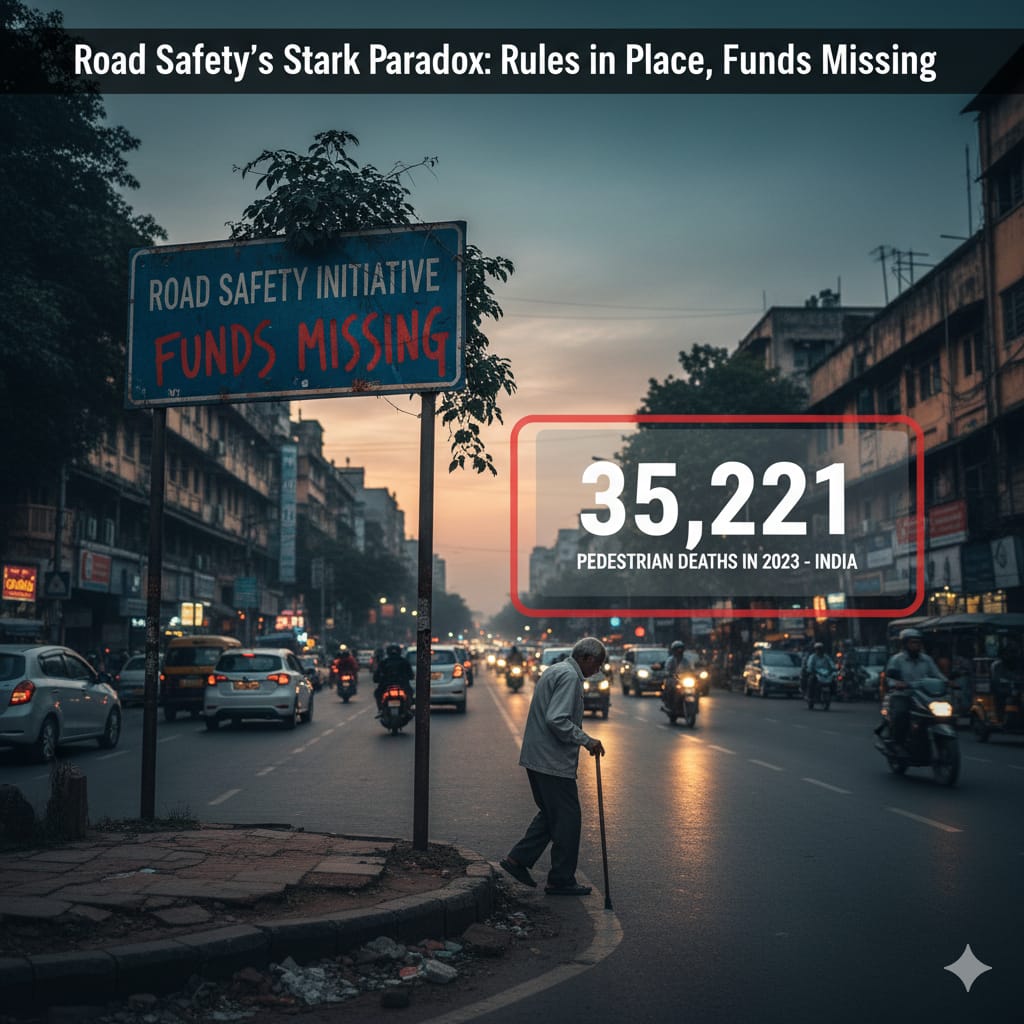
.jpeg)

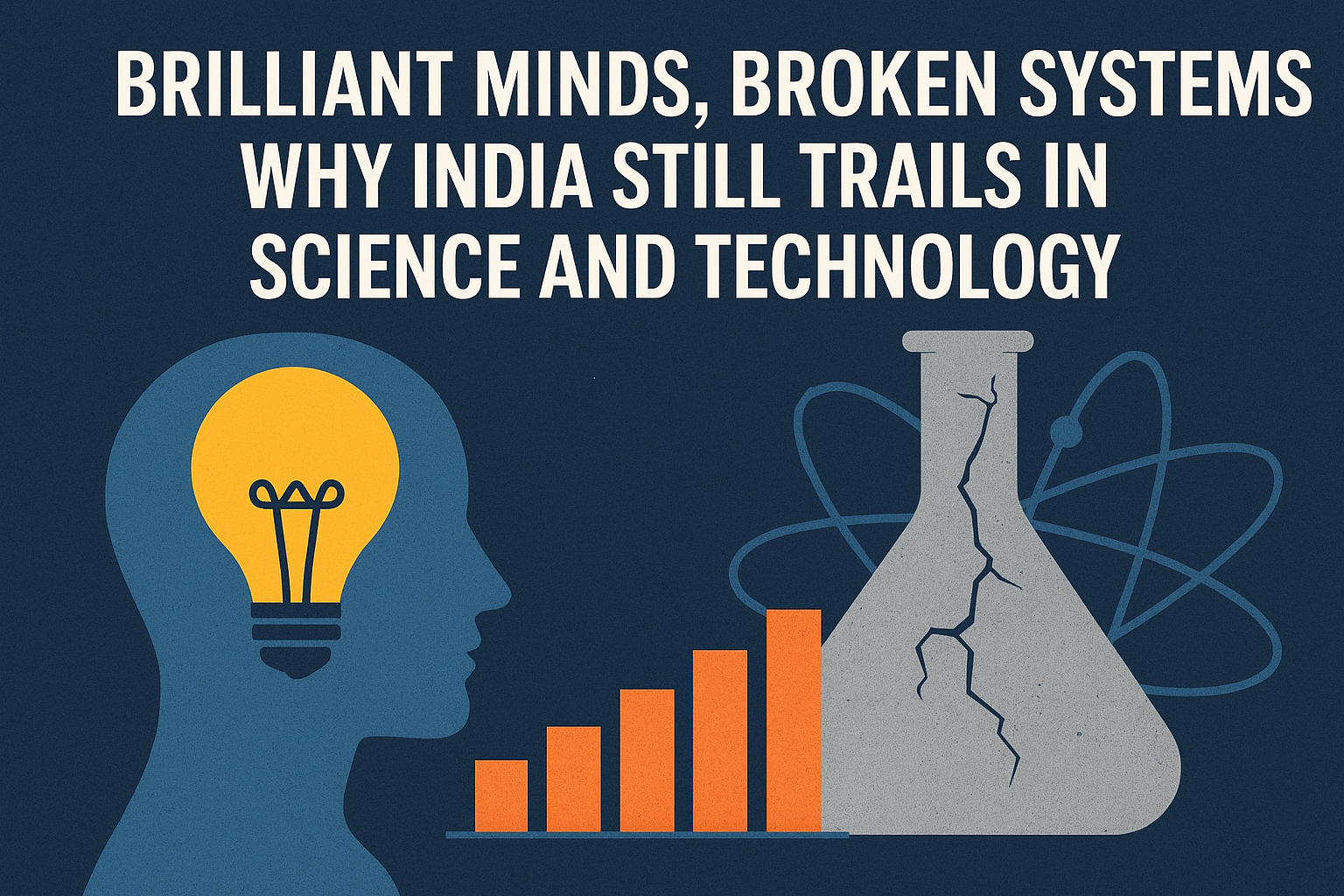


.jpeg)
